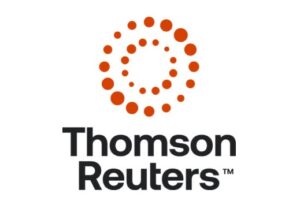Trump Will Cure Pandemic By Making Sure Poor People Can't See A Doctor
GALAXY BRAIN

(Photo by Win McNamee/Getty Images)
This afternoon at 3pm, President Trump is expected to announce a state of emergency under the Stafford Act. Finally.
“We have things that I can do, we have very strong emergency powers under the Stafford Act,” Trump bragged to reporters in the Oval Office on Thursday. “I have it memorized, practically, as to the powers in that act. And if I need to do something, I’ll do it. I have the right to do a lot of things that people don’t even know about.”

Ranking The Law Firms Lawyers Love
The Stafford Act is 192 pages, but … fine, whatever.
As The Los Angeles Times pointed out this morning, when and if Trump declares an emergency, FEMA will have access to $40 billion of disaster relief to combat the COVID-19 pandemic. It will also become much easier for individual states to use Medicaid waivers to expand services and eligibility for thousands of people who will soon find themselves simultaneously sick and out of work as the gig economy grinds to a halt.
“Getting an emergency declaration would really help us get services to people who need it,” said Cooper. Medi-Cal currently covers about 13 million low-income Californians.
Among other things, Cooper said the state wants to shorten lengthy verification procedures to quickly enroll people. Public health experts fear that gaps in insurance coverage make controlling coronavirus more difficult because patients who don’t have insurance won’t seek medical attention and testing they fear they can’t afford.
California and other states also want to ensure that mobile clinics and other temporary facilities set up to handle a crush of patients can bill Medicaid, which also would require a waiver.
If Trump hadn’t spent the past month swearing that the virus would disappear in warmer weather “like a miracle,” refusing to let states administer their own coronavirus tests, and locking cruise passengers on a floating petri dish to keep the number of confirmed cases down at “15,” he could have declared an emergency weeks ago.
Sponsored

Law Firm Business Development Is More Than Relationship Building

Thomson Reuters' Claims Explorer: A Powerful Tool For Legal Claim Identification


Ranking The Law Firms Lawyers Love

Thomson Reuters' Claims Explorer: A Powerful Tool For Legal Claim Identification

And if he had, states would have had flexibility to enroll newly unemployed residents quickly to ensure they could afford to get tested and treated. But expanding access to health care for poor people is really not the Trump administration’s bag. From imposing work requirements on Medicaid recipients to shifting to block grants that would allow states to kick millions of people off the rolls, if it takes coverage away from poor people, they are on it.
“Medicaid could be the nation’s biggest public health responder, but it’s such an object of ire in this administration,” Sara Rosenbaum, a Medicaid expert at George Washington University, told the LA Times. “Their ideology is clouding their response to a crisis.”
And yet, he waited just one day after hammering out a budget with Democrats agreeing to $1.4 billion for his southern border wall to declare a national emergency to justify filching $3.8 billion from military construction funds to build that wall the Mexicans were going to pay for.
It’s all about priorities. And the health of poor Americans is … not one of them.
Trump administration blocks states from using Medicaid to respond to coronavirus crisis [LA Times]
Sponsored

Curbing Client And Talent Loss With Productivity Tech

Luxury, Lies, And A $10 Million Embezzlement
Elizabeth Dye lives in Baltimore where she writes about law and politics.







